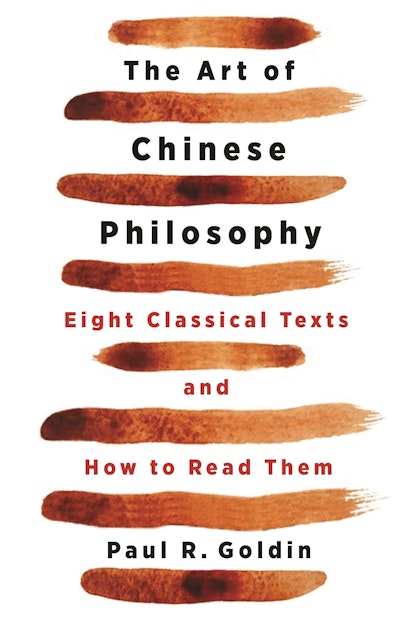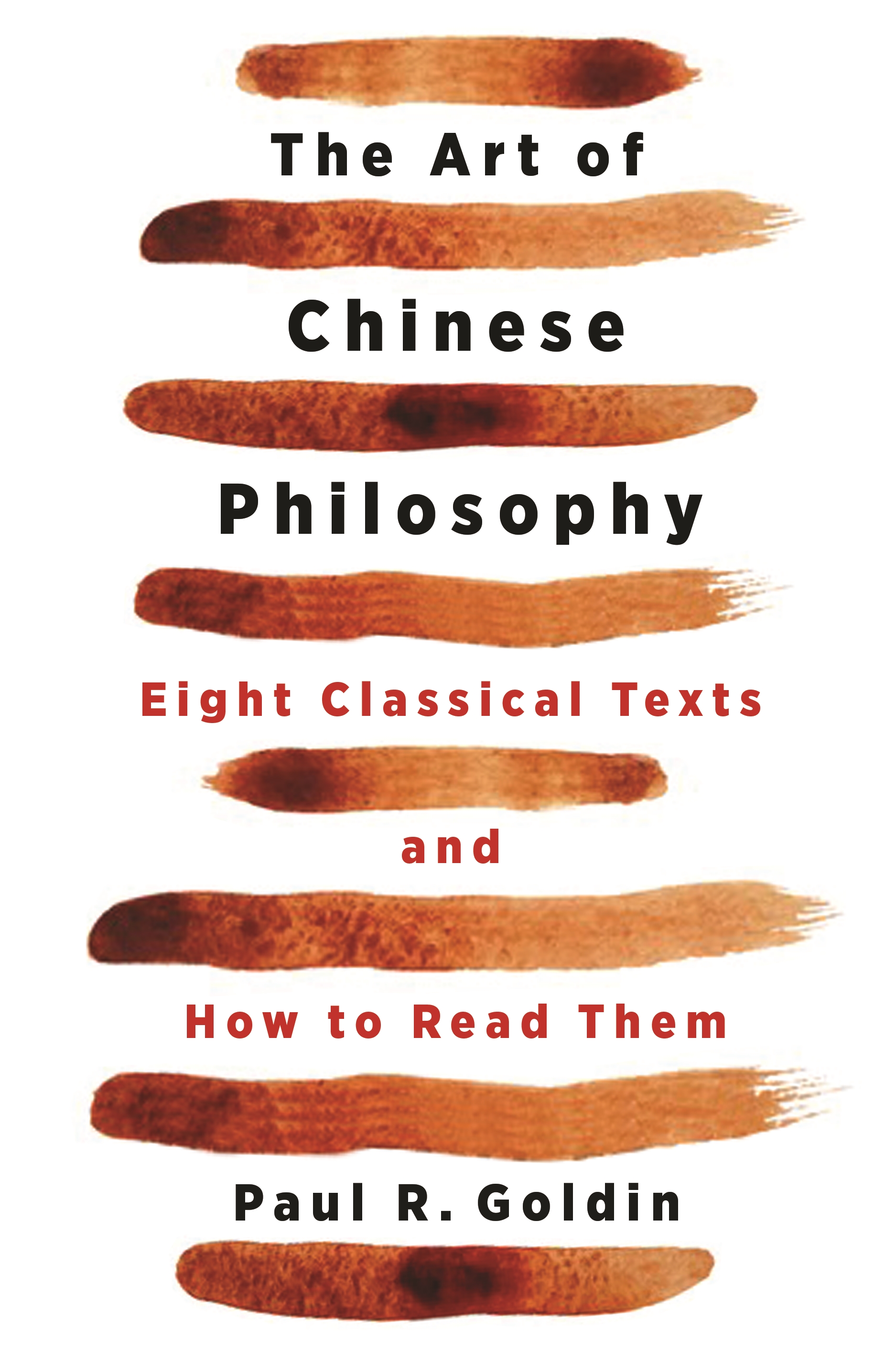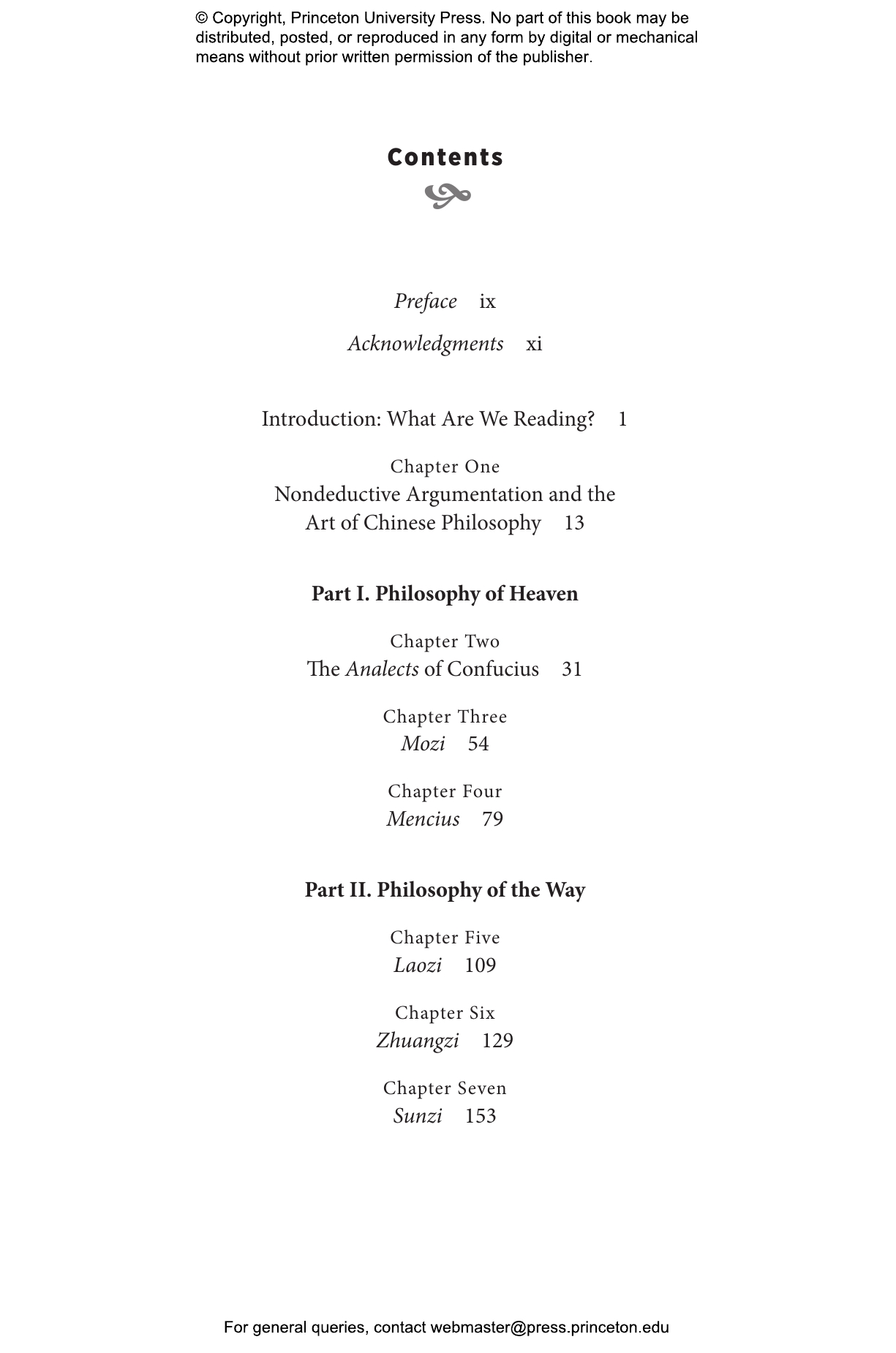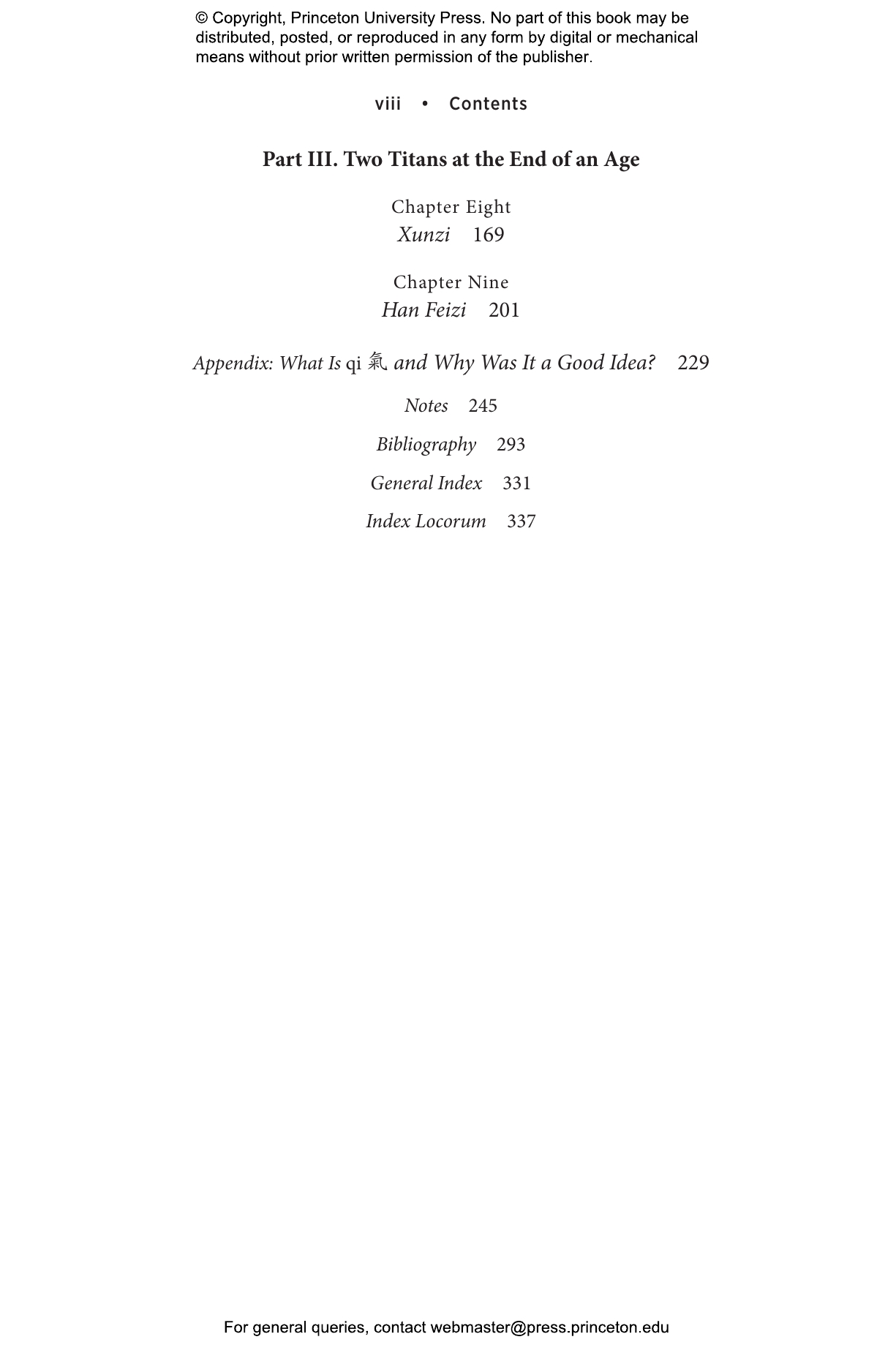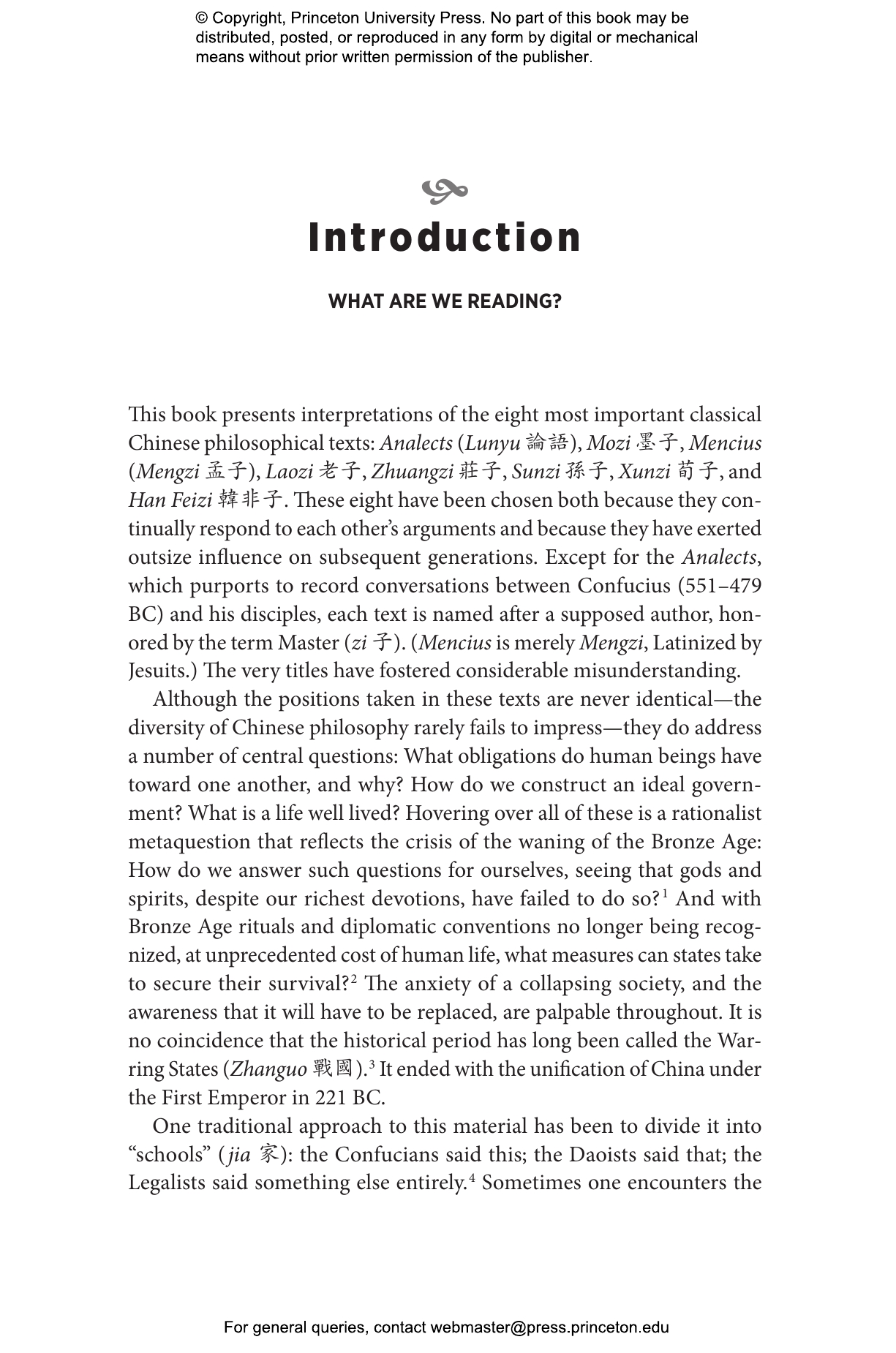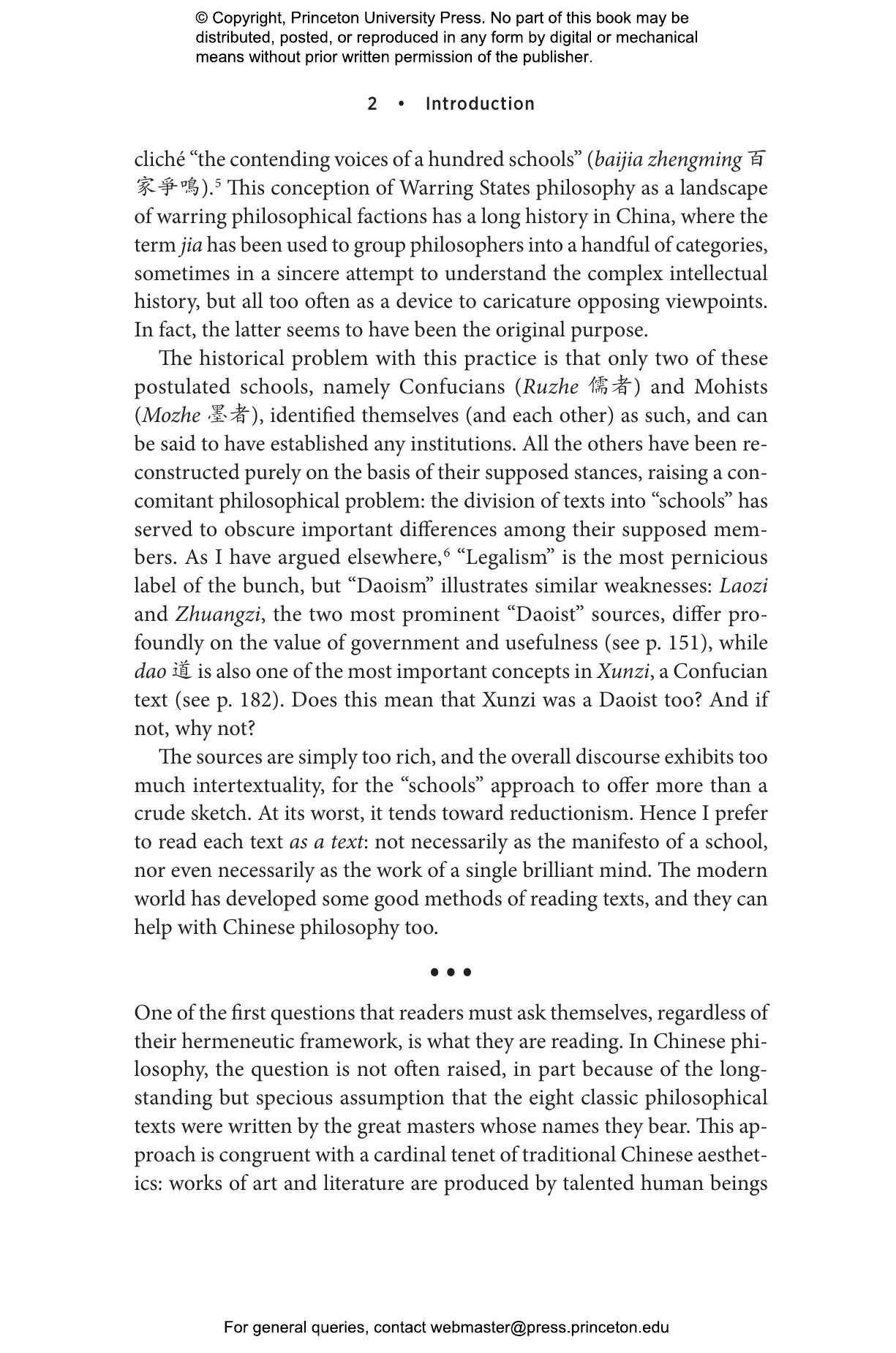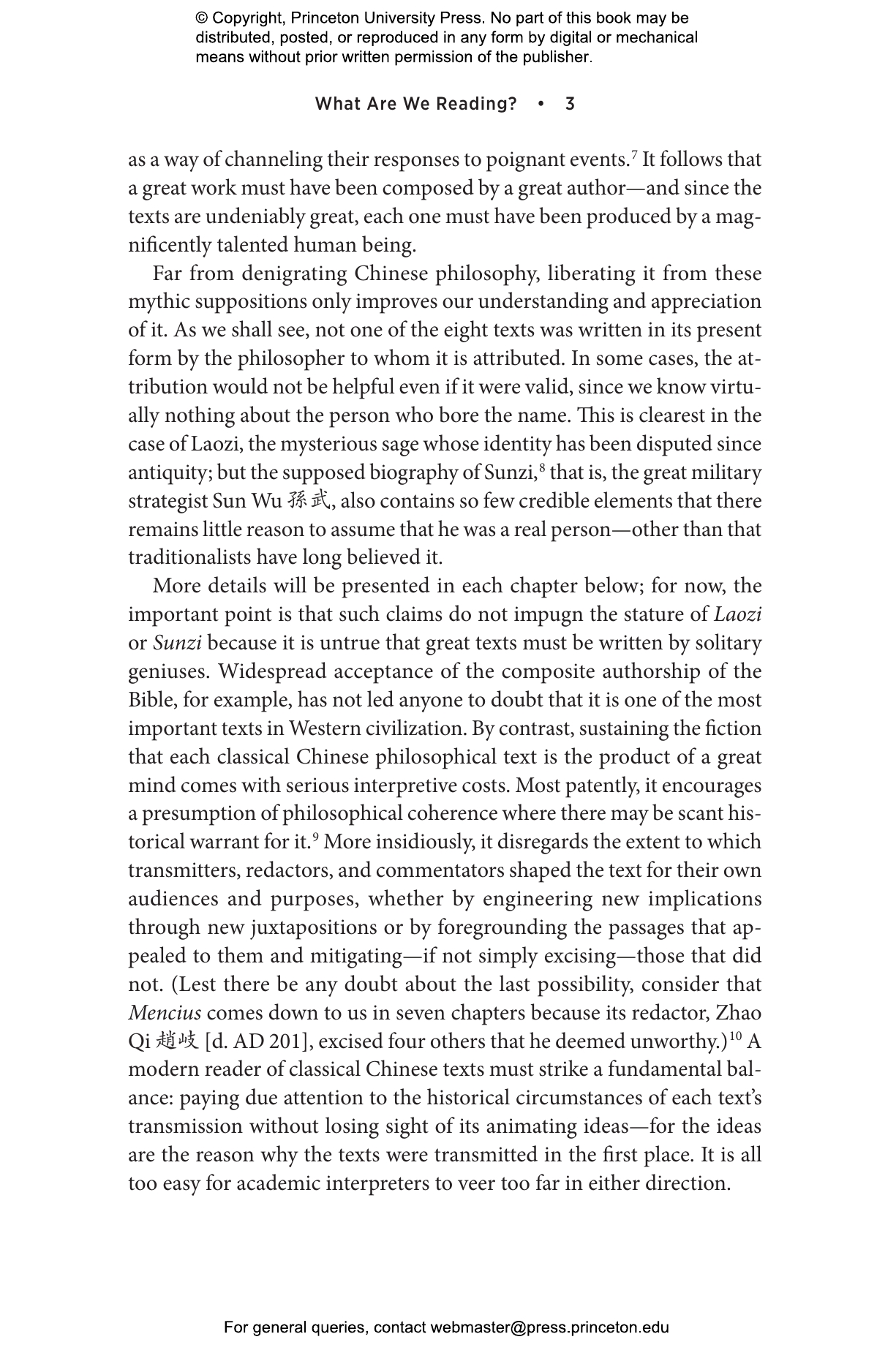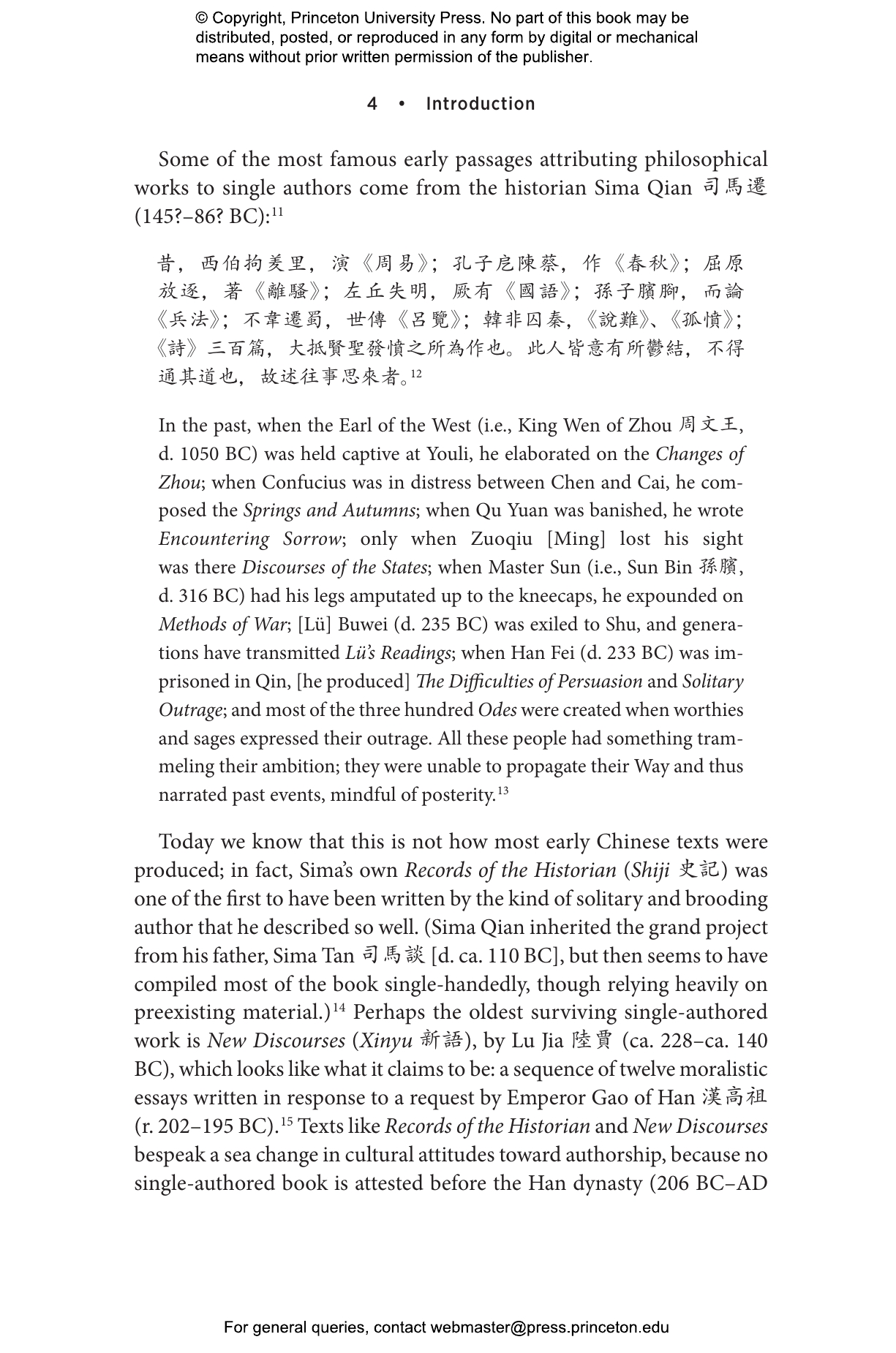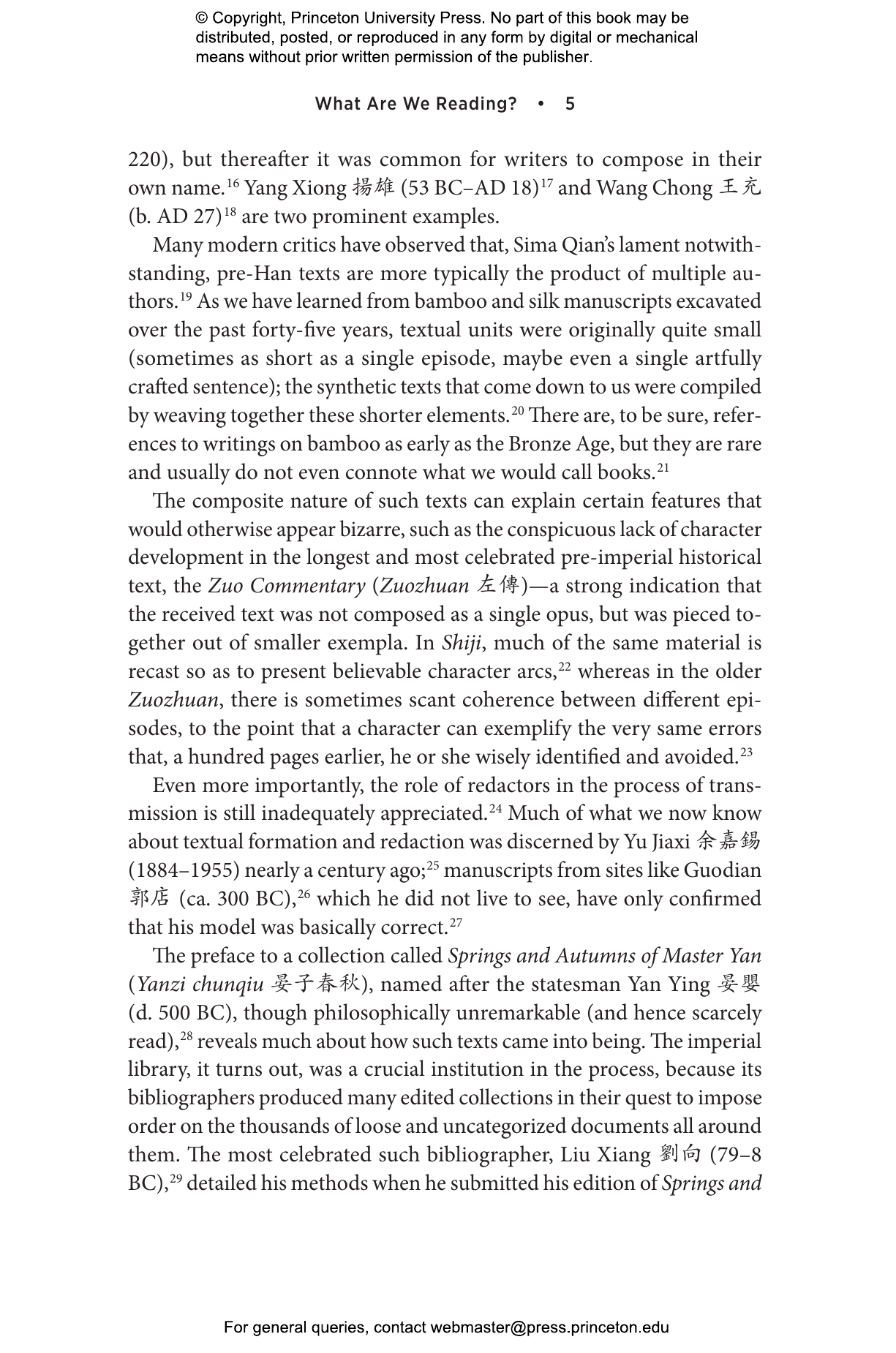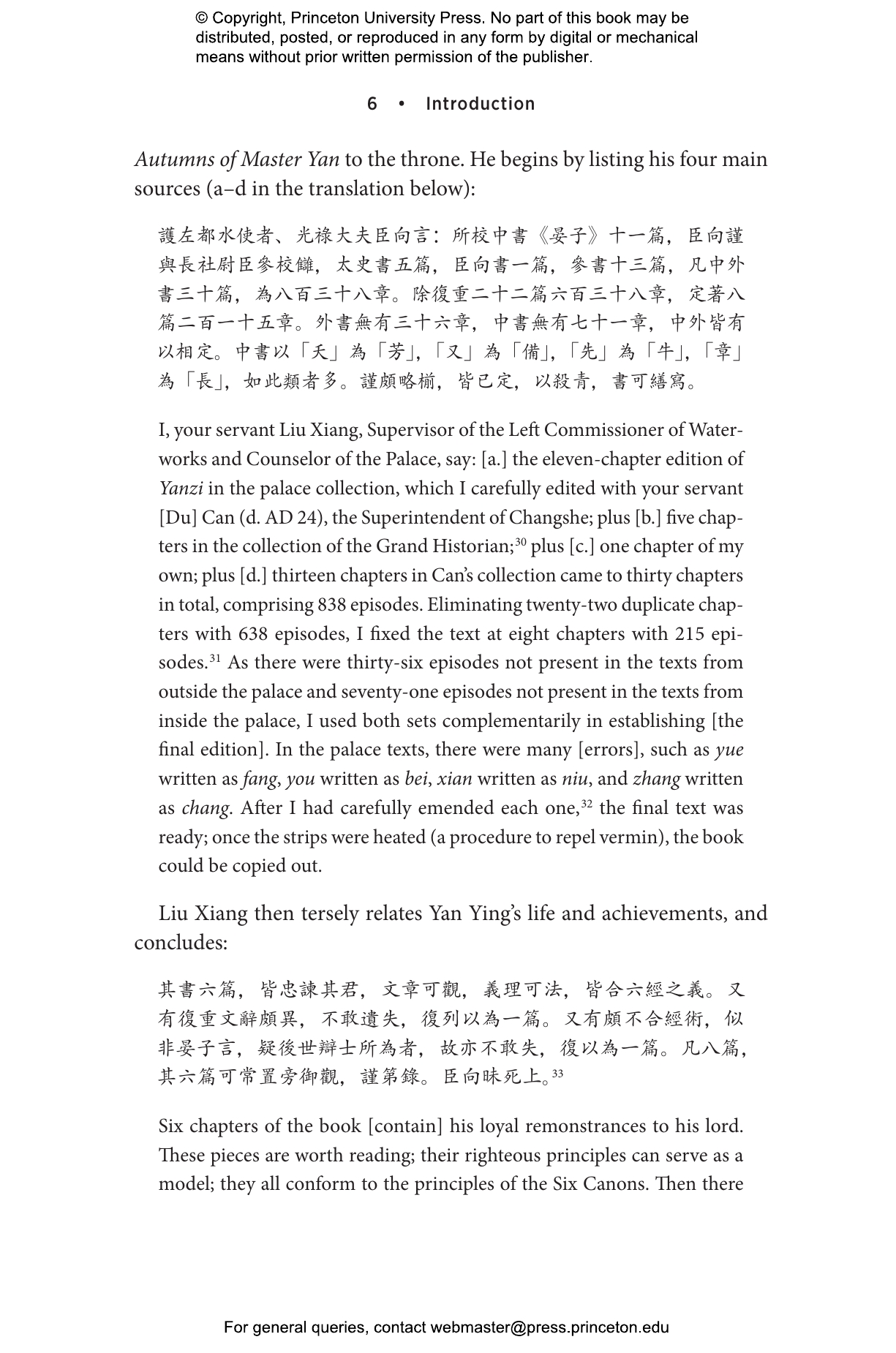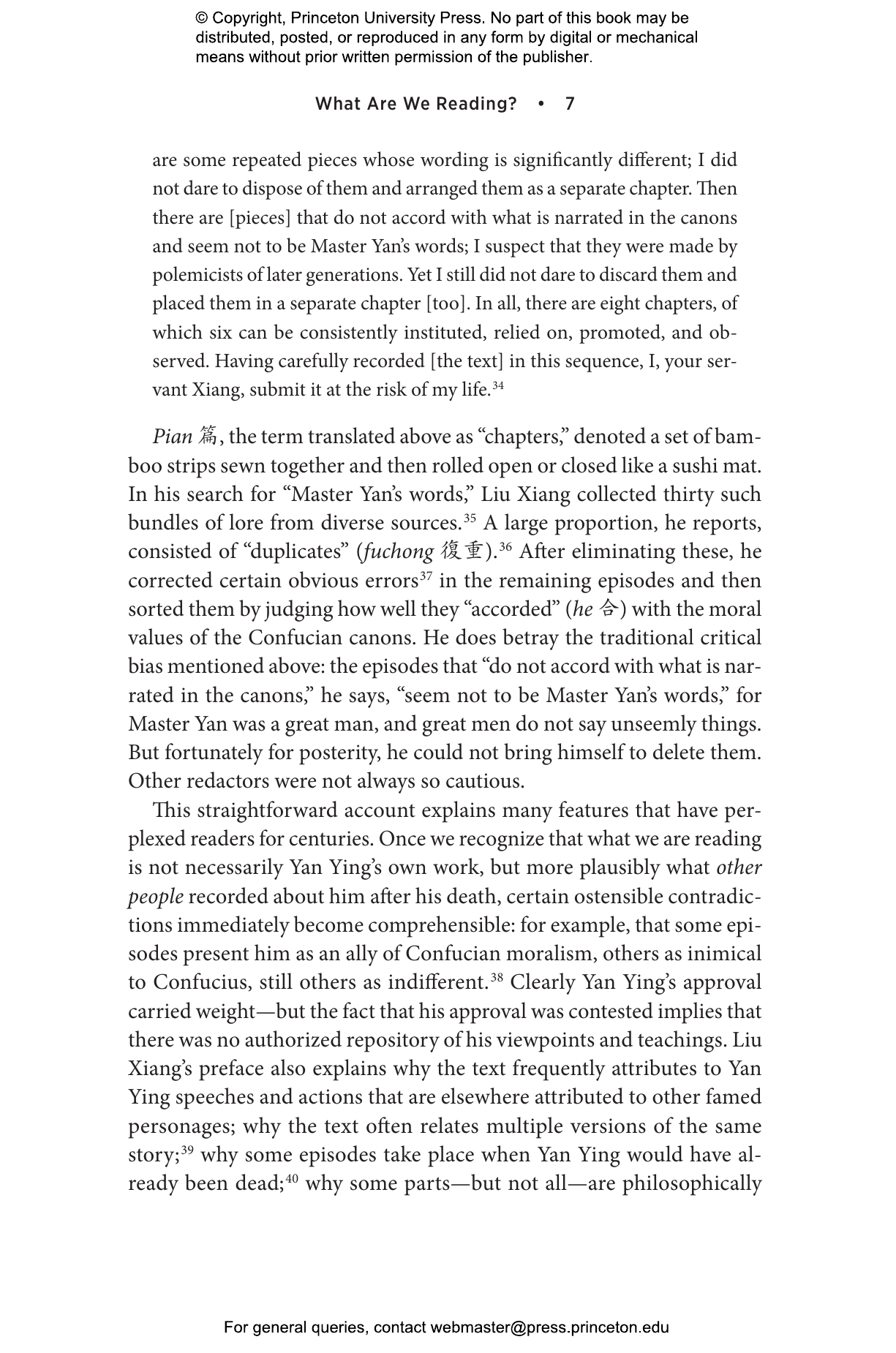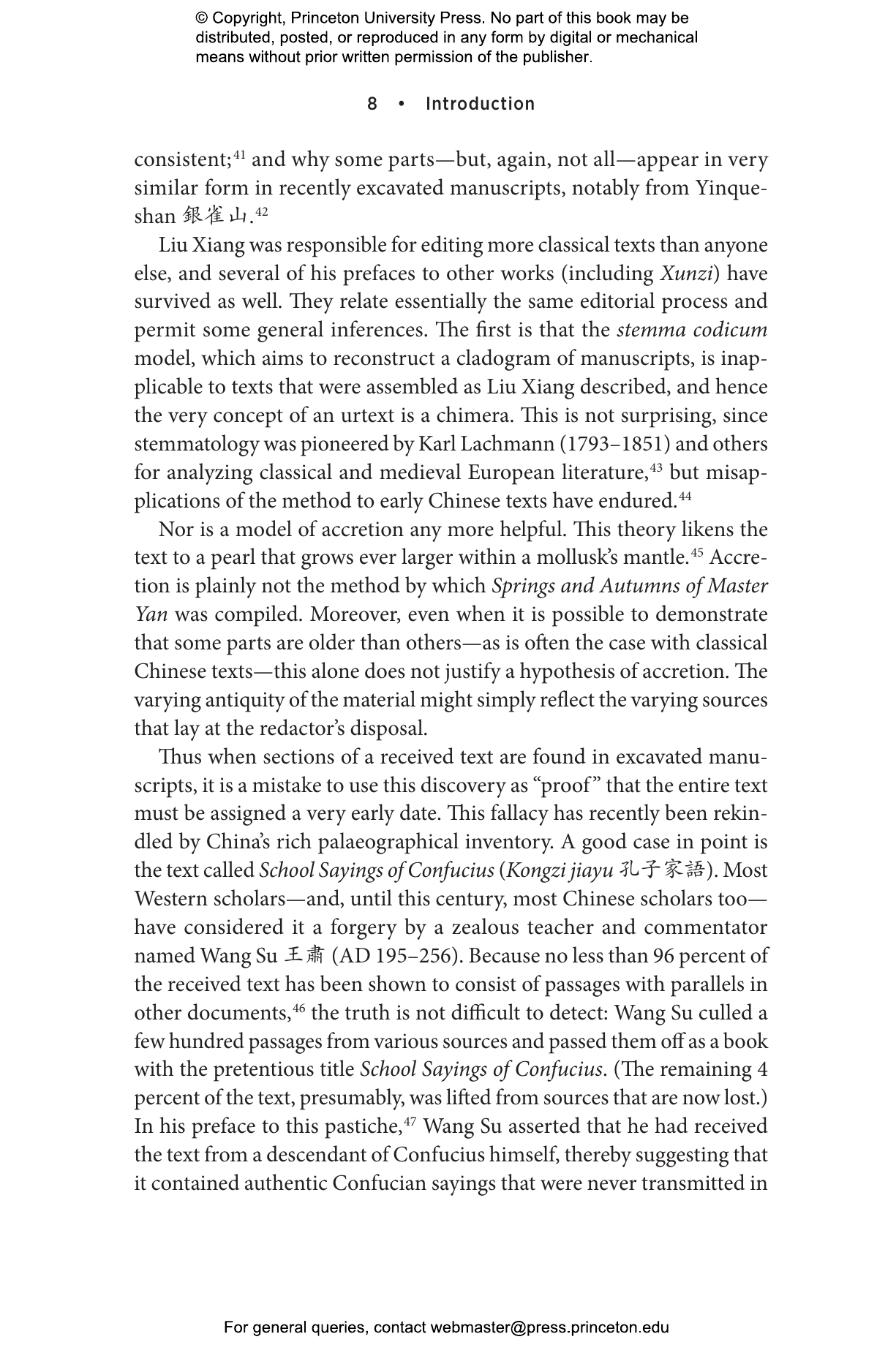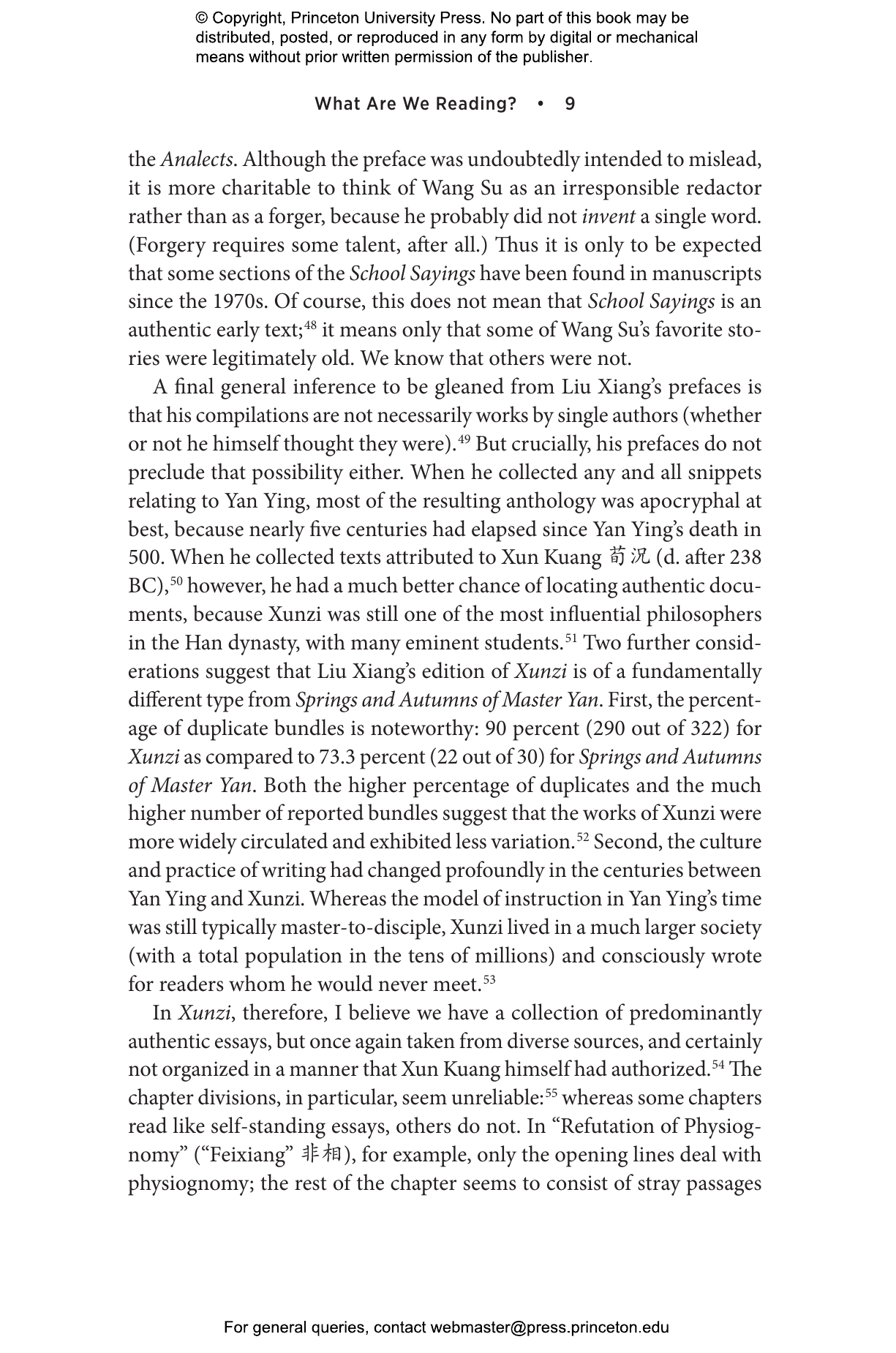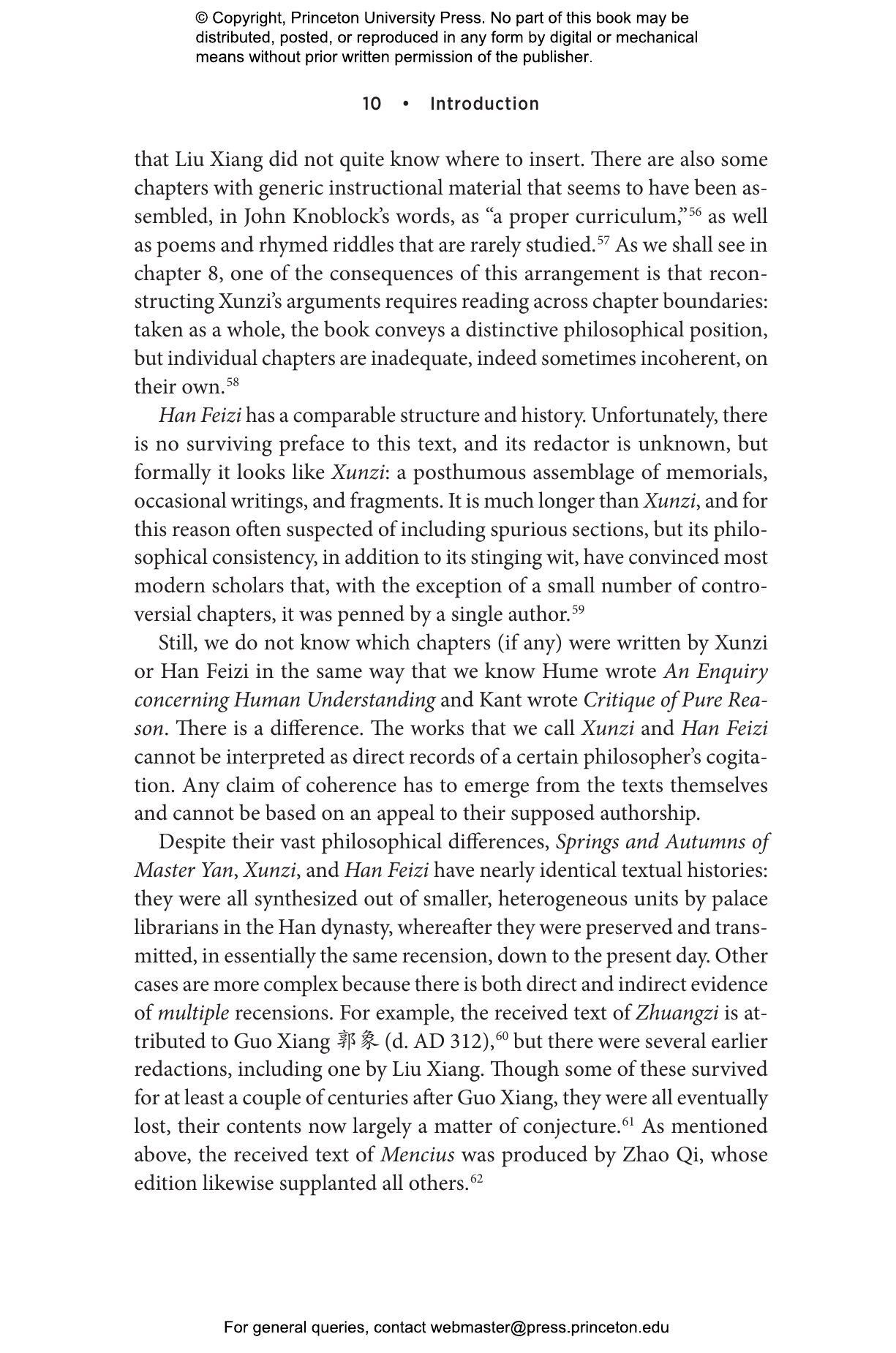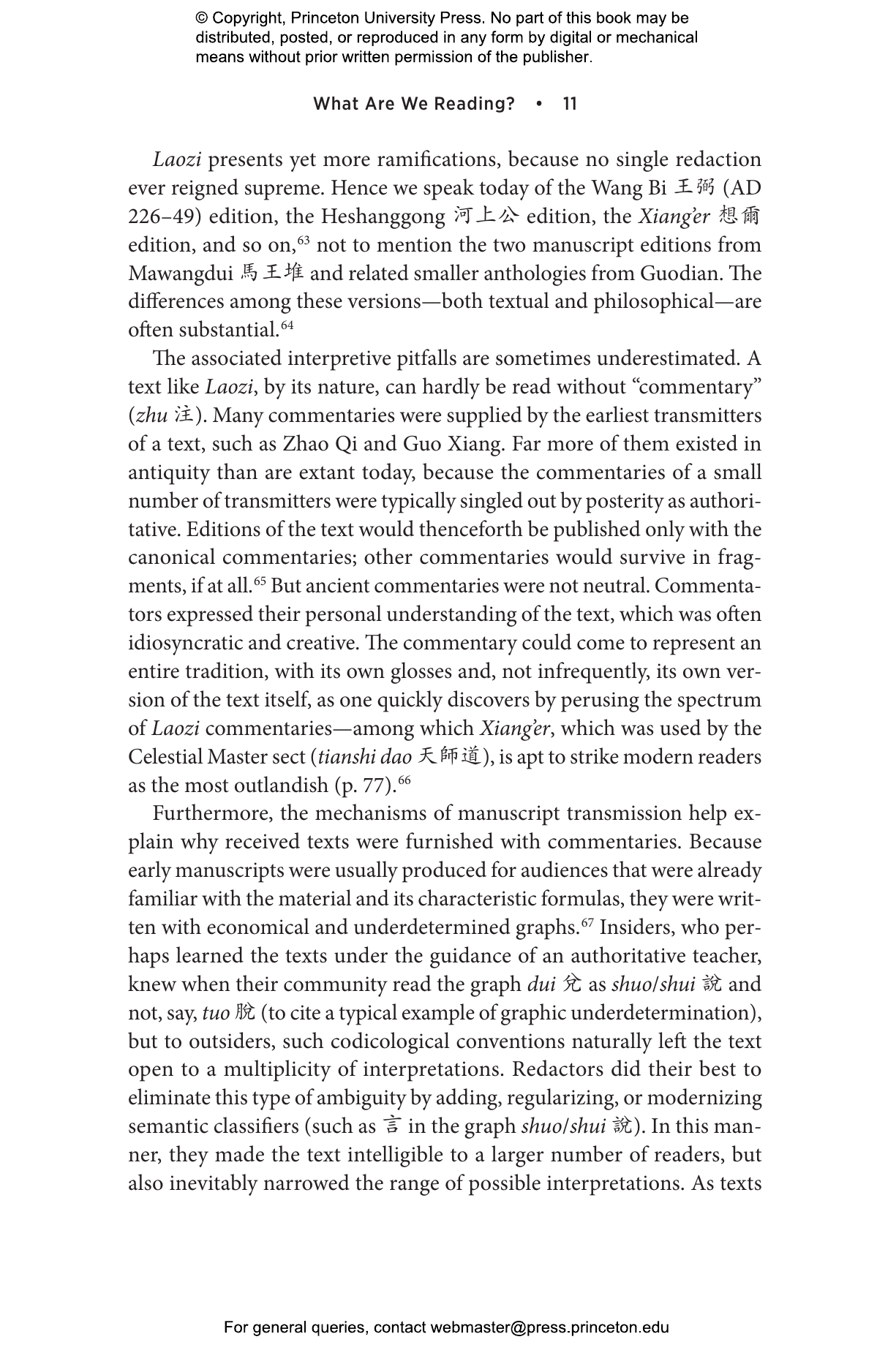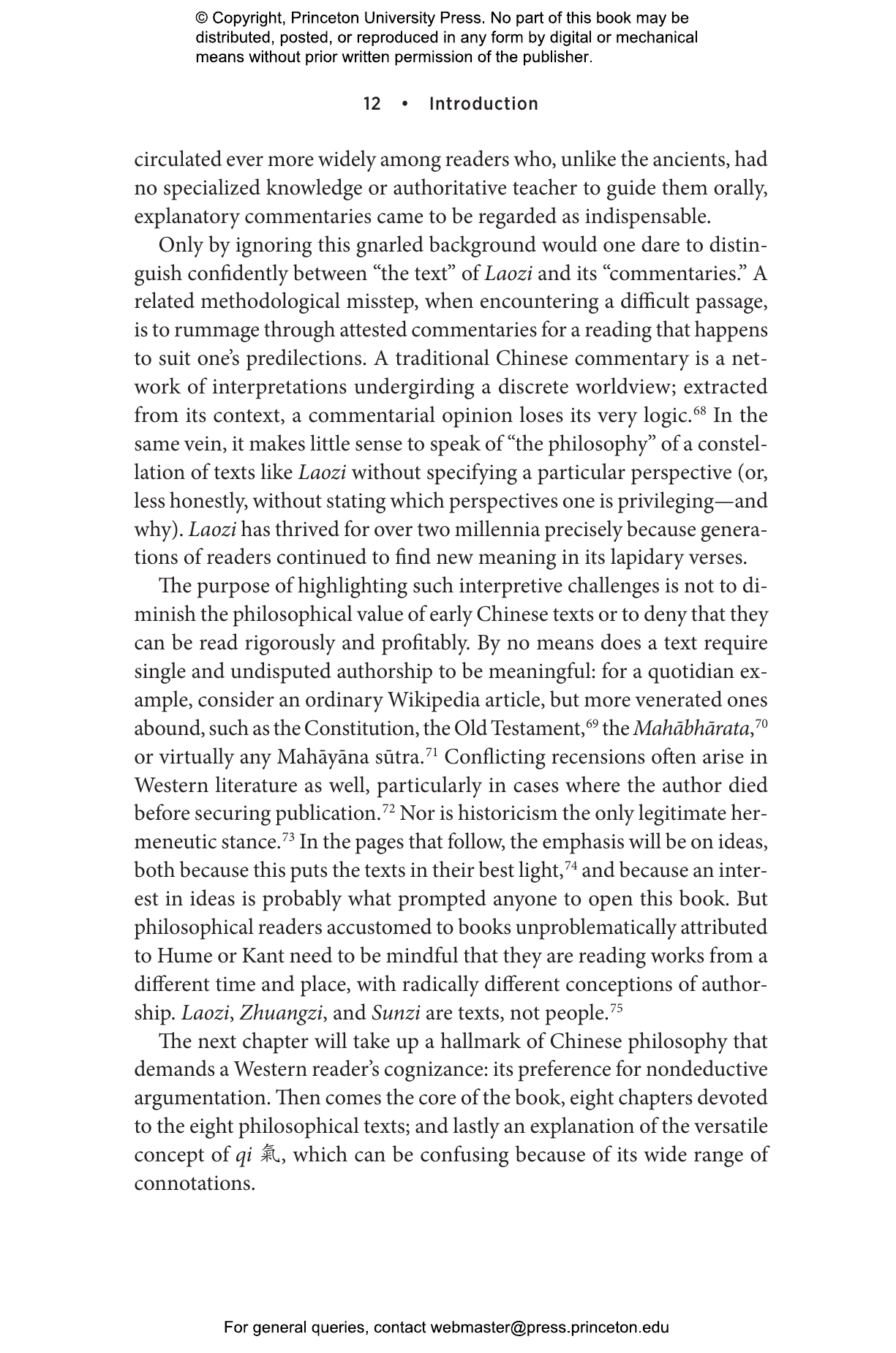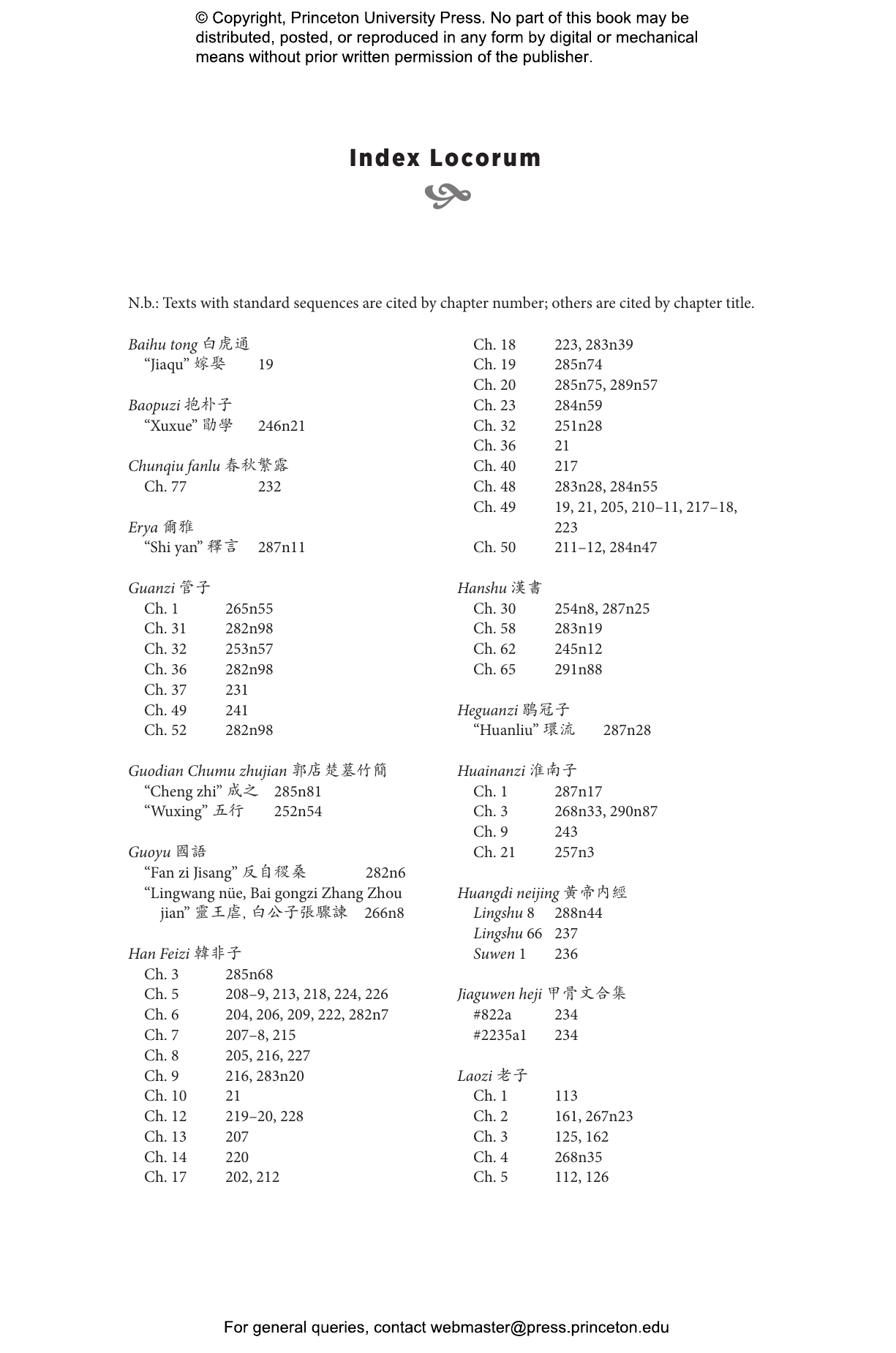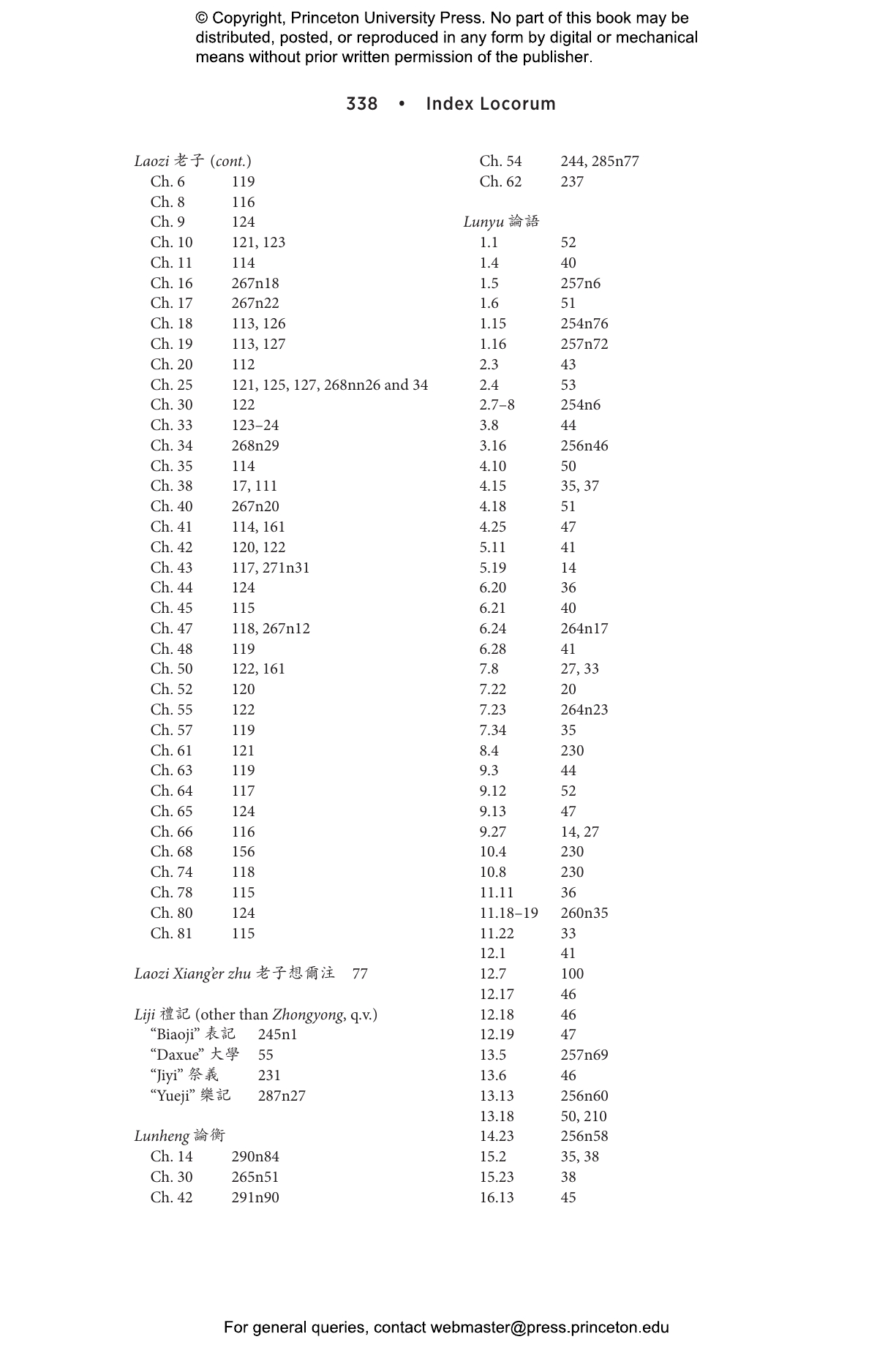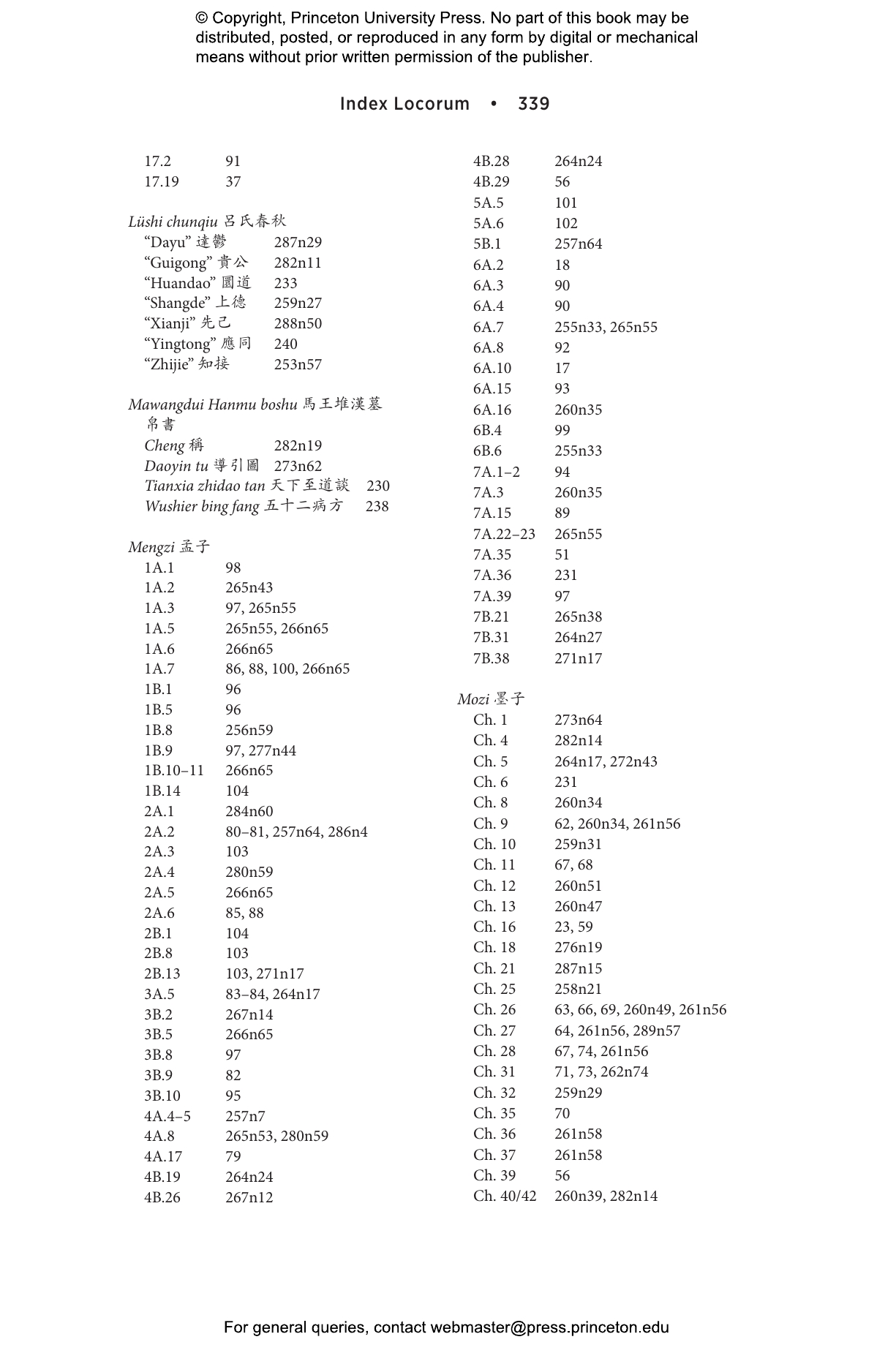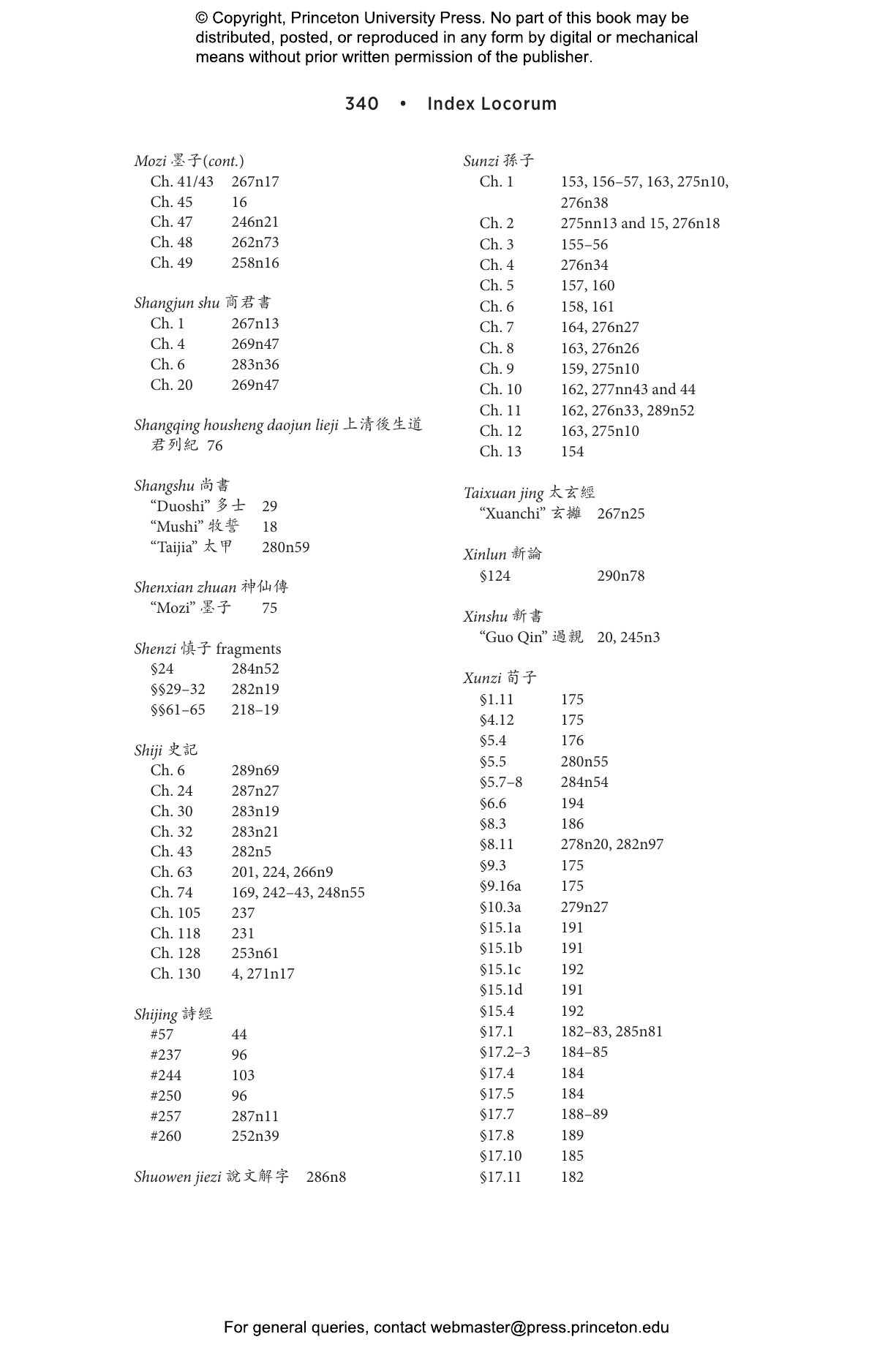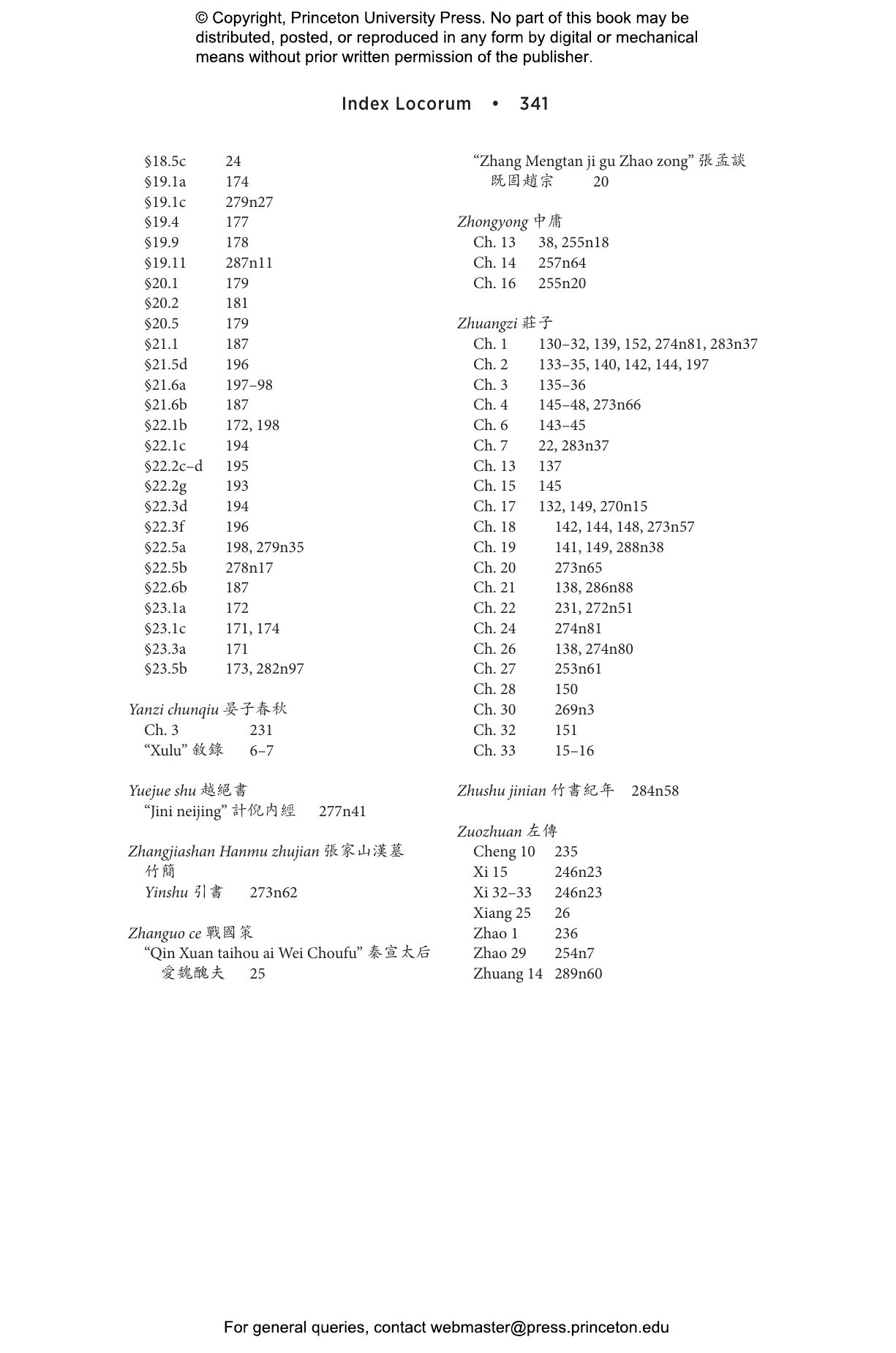This book provides an unmatched introduction to eight of the most important works of classical Chinese philosophy—the Analects of Confucius, Mozi, Mencius, Laozi, Zhuangzi, Sunzi, Xunzi, and Han Feizi. Combining accessibility with the latest scholarship, Paul Goldin, one of the world’s leading authorities on the history of Chinese philosophy, places these works in rich context as he explains the origin and meaning of their compelling ideas.
Because none of these classics was written in its current form by the author to whom it is attributed, the book begins by asking, “What are we reading?” and showing that understanding the textual history of the works enriches our appreciation of them. A chapter is devoted to each of the eight works, and the chapters are organized into three sections: “Philosophy of Heaven,” which looks at how the Analects, Mozi, and Mencius discuss, often skeptically, Heaven (tian) as a source of philosophical values; “Philosophy of the Way,” which addresses how Laozi, Zhuangzi, and Sunzi introduce the new concept of the Way (dao) to transcend the older paradigms; and “Two Titans at the End of an Age,” which examines how Xunzi and Han Feizi adapt the best ideas of the earlier thinkers for a coming imperial age.
In addition, the book presents clear and insightful explanations of the protean and frequently misunderstood concept of qi—and of a crucial characteristic of Chinese philosophy, nondeductive reasoning. The result is an invaluable account of an endlessly fascinating and influential philosophical tradition.
Paul R. Goldin is professor of East Asian languages and civilizations at the University of Pennsylvania and the author of many books, including Confucianism, After Confucius, and Rituals of the Way: The Philosophy of Xunzi.
- Preface
- Acknowledgments
- Introduction: What Are We Reading?
- Chapter One Nondeductive Argumentation and the Art of Chinese Philosophy
- Part I. Philosophy of Heaven
- Chapter Two The Analects of Confucius
- Chapter Three Mozi
- Chapter Four Mencius
- Part II. Philosophy of the Way
- Chapter Five Laozi
- Chapter Six Zhuangzi
- Chapter Seven Sunzi
- Part III. Two Titans at the End of an Age
- Chapter Eight Xunzi
- Chapter Nine Han Feizi
- Appendix: What Is qi 氣 and Why Was It a Good Idea?
- Notes
- Bibliography
- General Index
- Index Locorum
"[The Art of Chinese Philosophy] is a book I’d wanted to find before: a lucid, but not simplifying, introduction to eight classic texts, full of lapidary poetry."—Hannah Sullivan, Times Literary Supplement
"A strikingly original, reliable, readable, and therefore most welcome introduction to the gigantic topic of China's great philosophy."—Barbara Hendrischke, Religious Studies Review
"An outstanding introduction to eight of the most important and influential texts of classical Chinese philosophy. Goldin forefronts the question of what these texts are and how we should read them, demonstrating in practice that philosophical analysis is only enhanced when it is combined with textual history. This is a wonderful work, fully accessible and filled with invaluable insights."—Michael Puett, author of The Path: What Chinese Philosophers Can Teach Us about the Good Life
"The Art of Chinese Philosophy is a masterpiece. It raises the discussion of these texts to a new level by combining incisive readings with new understandings inspired by linguistic analysis and advances in textual criticism. Goldin combines a mastery of the secondary literature, lucid prose, excellent translations, and an ability to indicate the texts' modern relevance when appropriate. The major advantage of this book over manifold others is its incomparably better understanding of the complexity of these works."—Yuri Pines, author of The Everlasting Empire: The Political Culture of Ancient China and Its Imperial Legacy
